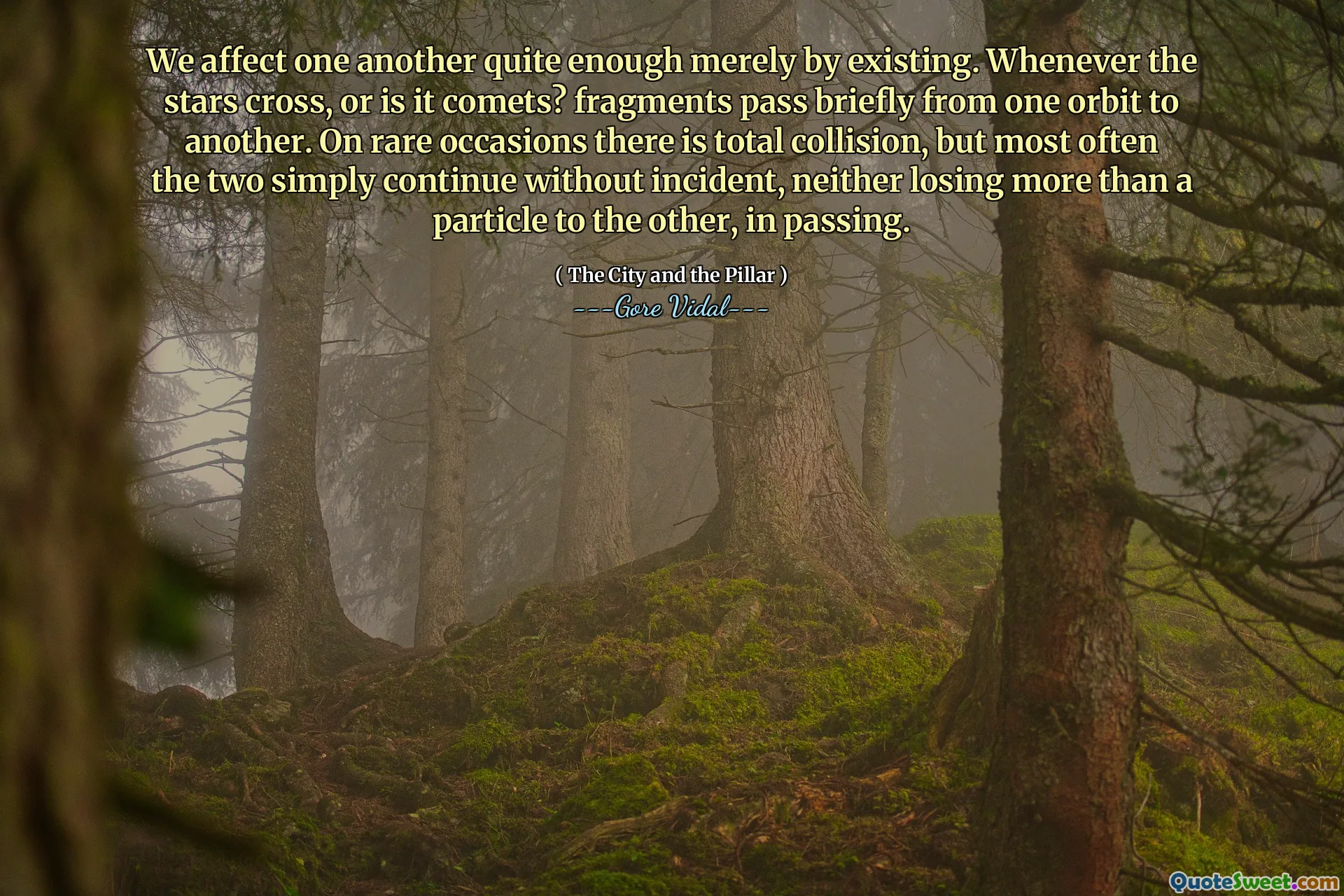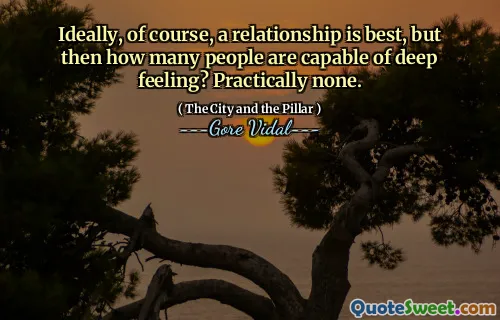
We affect one another quite enough merely by existing. Whenever the stars cross, or is it comets? fragments pass briefly from one orbit to another. On rare occasions there is total collision, but most often the two simply continue without incident, neither losing more than a particle to the other, in passing.
In this excerpt from Gore Vidal's "The City and the Pillar," the author reflects on the interconnectedness of existence. By merely being, individuals influence each other, albeit subtly. This concept is likened to celestial bodies that intersect paths in the universe, such as stars and comets. It suggests that our lives interact and touch one another momentarily, creating a ripple effect even with minimal contact.
Vidal's analogy highlights that while most interactions may not lead to significant change or conflict, they can still leave behind tiny traces or 'particles' of influence. The comparison to cosmic collisions emphasizes that significant encounters may be rare, yet they shape our experiences and relationships. Overall, the passage illustrates the delicate balance of influence in human relationships, akin to the movement of celestial bodies through space.





